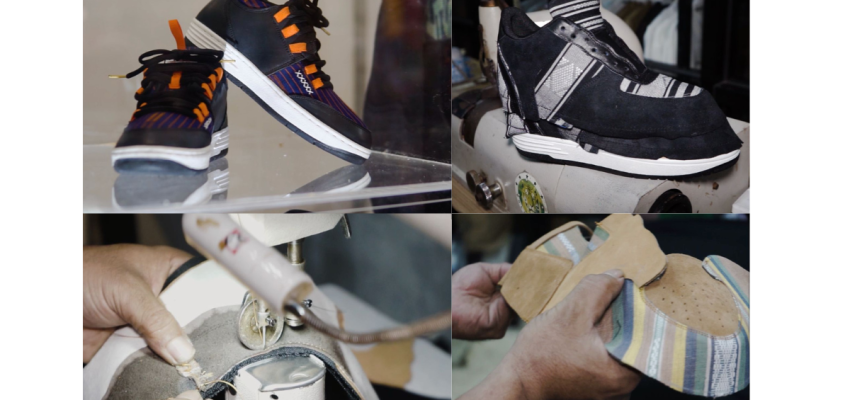Saat ini fenomena inovasi pelayanan publik menjadi perhatian penting dalam upaya reformasi birokrasi. Kebutuhan reformasi…
THE IMPACT OF COVID19 ON FOOTWEAR SME
Normal 0 false false false EN-ID X-NONE X-NONE /* Style Definitions */ table.MsoNormalTable {mso-style-name:"Table Normal"; mso-tstyle-rowband-size:0; mso-tstyle-colband-size:0; mso-style-noshow:yes; mso-style-priority:99; mso-style-parent:""; mso-padding-alt:0in 5.4pt 0in 5.4pt; mso-para-margin:0in; mso-para-margin-bottom:.0001pt; mso-pagination:widow-orphan; font-size:12.0pt; font-family:"Calibri",sans-serif; mso-ascii-font-family:Calibri; mso-ascii-theme-font:minor-latin; mso-hansi-font-family:Calibri; mso-hansi-theme-font:minor-latin; mso-bidi-font-family:"Times New Roman"; mso-bidi-theme-font:minor-bidi; mso-ansi-language:EN-ID;} At the beginning of 2020, business optimism still seemed to provide positive energy for expansion. Although the growth of the national footwear industry decreased by 1% compared to 2018, the business expansion plan for 2020 has become an important agenda for every business unit, including the footwear industry. Although, at that time, in early 2020, the performance of the footwear industry was disrupted due to the COVID-19 outbreak in Wuhan, the national footwear industry had prepared alternative strategies, including the method of finding sources of raw materials other than China due to disrupted distribution channels. Not until the maturation of the business expansion plan did the crushing blow from the COVID-19 impact in Wuhan, China, finally arrive in Indonesia. Of course, starting in early March, the effect of the COVID-19 pandemic will attack the defense joints of the footwear industry.
Purchasing power has begun to decline, coupled with the government's call to work from home, making access to sales fall at 70%. The business expansion mode that was prepared at the beginning of the year has drastically changed to a survival mode. Not many think that the impact of the pandemic can change the 360-degree business model from expansion mode to survival mode. Several large and medium scale industries have laid off 50% of their workforce, failing to continue producing and even choosing to close. Likewise, several small to micro-scale industries have laid off more than 70% of their workers to survive in the current situation.
Before going deeper into the situation in the national footwear IKM, global survey data on the footwear industry impact of covid19 (1) in March 2020 showed a prediction of a 22.5% decline in world footwear consumption. If the expert's prediction in the survey is correct, this year's footwear consumption will fall to 696 million pairs in North America (-21%), 908 million pairs in Europe (-27%), and 2.4 billion pairs in Asia (-20%) . From the prediction data above, the assumption is that the impact of the COVID-19 pandemic has had a systematic effect on the global footwear industry, including in Indonesia as one of the world's 4th largest production centers (1,271 million pairs) in 2019 and the world's 3rd largest exporter (406 million pairs). million pairs) in 2019 (2).
Returning to the domestic situation, based on a survey of 35 local brands in April 2020 (3) , this pandemic has dramatically impacted the production chain and partnerships established with small industries. From the data for the 35 local brands, there are more than 571 employed workers and 182 SMIs who are partners, where the average IKM employs 2-9 people. With a sample of only 35 local brands, more than 1500 workers rely on this footwear industry. This data does not include industries that support the footwear production value chain, such as raw materials, and other supporting accessories.

The survey data shows that footwear SMEs need government intervention to maintain production and sales. There are five major inputs, including (1) the existence of special financing (fiscal) incentives for IKM, (2) the ease of labor policies, (3) the ease of distribution of raw materials, (4) credit relaxation and (5) promotion of IKM products. Financing incentives for SMEs in the survey are important to maintain current production. Incentives in the form of credit stimulus will help SMEs regulate cash flow when purchasing power declines.
From the survey data, the financing incentive program for SMEs will be used to manage raw material needs, production costs, including labor costs, resetting company cash flows, including loans with financial institutions, and conducting promotions.
The great hope of the local footwear industry, with government intervention, is to have strong endurance during the COVID-19 pandemic and be able to rebuild. Besides that, there must also be opportunities, opportunities, and wisdom behind every event. So far, many great events have taught us that great possibilities and opportunities arise when difficulties arise. Congratulations on finding new opportunities to be more advanced.
Note:
(1) World Footwear Business Condition Survey – 1st Semester 2020, APICCAPS April 2020
(2) World Footwear Yearbook 2019, APICCAPS 2019
(3) Survey Local Brand terhadap 35 local brand tanggal 14-15 April 2020 terkait dampak covid19 (BSW & AKR)
From the survey data, the financing incentive program for SMEs will be used to manage raw material needs, production costs, including labor costs, resetting company cash flows, including loans with financial institutions, and conducting promotions.
The great hope of the local footwear industry, with government intervention, is to have strong endurance during the COVID-19 pandemic and be able to rebuild. Besides that, there must also be opportunities, opportunities, and wisdom behind every event. So far, many great events have taught us that great possibilities and opportunities arise when difficulties arise. Congratulations on finding new opportunities to be more advanced.
Note:
(1) World Footwear Business Condition Survey – 1st Semester 2020, APICCAPS April 2020
(2) World Footwear Yearbook 2019, APICCAPS 2019
(3) Survey Local Brand terhadap 35 local brand tanggal 14-15 April 2020 terkait dampak covid19 (BSW & AKR)
(function(d, s, id) {
if(d.getElementById('fb-root')) return;
var fbRoot = d.createElement('div');
fbRoot.id = 'fb-root';
document.getElementsByTagName('body')[0].appendChild(fbRoot);
var js, fjs = d.getElementsByTagName(s)[0];
if (d.getElementById(id)) return;
js = d.createElement(s); js.id = id;
js.src = "https://connect.facebook.net/en_US/sdk.js#xfbml=1&version=v2.12";
fjs.parentNode.insertBefore(js, fjs);
}(document, 'script', 'facebook-jssdk'));




This Post Has 0 Comments